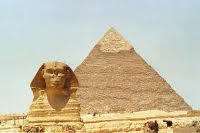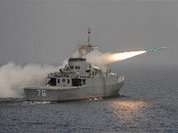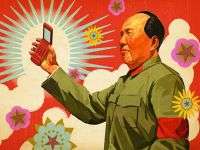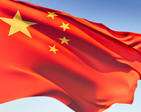|
|
By Anton Ponomarev
- February 16, 2011
 The Senator from Arizona John McCain has maintained a reputation as the most noticeable representative of the "hawks" in the U.S. political establishment. The other day he made warnings to the Russian prime minister and Chinese president, reminding them of the overthrow of Mubarak.
The senator spoke with CBS channel. "I do not think that all these events are confined to the Middle East," he said. "These winds of change that are blowing, I think I would be less cocky in the Kremlin with my KGB cronies today..."
The senator also suggested the Chinese leader Hu to be "a little less secure."
On the one hand, it is clear that since McCain was shot down in the skies over Vietnam by a Soviet anti-aircraft missile, he disliked communism in general and Russia in particular. And since then he has been threatening the ghost wandering in his consciousness, criticizing Russia and China.
On the other hand, it is not clear what exactly John McCain was going to say, stating that the overthrow of Mubarak is a warning to Putin and his "KGB cronies." It is a well-known fact that the U.S. has been a long-time supporter of the Mubarak regime in Egypt. United States equipped the Egyptian army with weapons, and supported the country's police. During the events at Tahrir Square cameras took a few shots of the containers with tear gas used by the police against the demonstrators. They had labels "Made in USA".
By Salman Shaikh
- February 14, 2011
 As people of all generations and backgrounds celebrate across Egypt this weekend, we are seeing history unfold. "Umm al-Duniya," the "mother of the world," has reawakened. So will the rest of its children around the region. Egyptians have changed the face of the region forever.
For too long, Egyptians have been in slumber, their lives marred by a sense of loss and by life's everyday indignities. Held back by the "big brother regime," which knew best for its people, the citizens lived under a collective sense of inferiority.
Now the events of the past few weeks in Egypt, and before that in Tunisia, have swept these sentiments away. What has been remarkable is not just that after 30 years President Hosni Mubarak has been ousted, but the way that this occurred. A new generation of 18- to 30-year-olds has organized its communities, stood up to the pressures of a dictator and his feared security forces, and countered with new ideas, when all seemed hopeless, to lead a nation of 84 million to freedom.
By Sergei Balmasov
- February 11, 2011
 Iran has made yet another announcement about the development of a new type of weapon. The Iranian administration claimed that it was going to launch the mass production of new ballistic missiles. According to Chief Commander of Iran's Revolutionary Guards, Brigadier General Mohammad Ali Jafari, the missiles, called the Persian Gulf, develop the speed of 3,675 kilometers an hour and strike targets at a range of 300 kilometers. Jafari also stated, in a classic Iranian manner, that the new missile was unreachable for enemies.
This is undoubtedly a huge success for the Islamic Republic, and it makes one recollect Iran's previous achievements in the field of defense. Indeed, Teheran has achieved a lot at this point. It has supposedly started building own destroyers and frigates, not to mention state-of-the-art aircraft and air defense systems. What is more, Iran releases statements about the development of new types of arms on a regular basis. Iranian officials persistently claim that all of their systems surpass all foreign analogues in all respects.
What does the Iranian defense industry actually produce? Let's take, for example, the country's state-of-the-art fighter jets. Iran decided to develop its own aerospace industry at the end of the 1980s. Back in those years, Iran was staying in a state of war with Iraq. The Iranian Air Force lost much of its strength because of the sanctions imposed against the country. First and foremost, Teheran was experiencing serious difficulties with deliveries of spare parts.
By Felipe Corazza
- February 10, 2011

Trying to define the popular mobilisation in Egypt as a "miracle of the Internet" is as unproductive as to ignore the strength of the network to mobilise young people and transmission of information.
A popular revolution underway in Egypt already has a curious side effect: a trench in the open discussion on the use of the Internet - more specifically social networks - and cell phones in the protests. On the one hand, there are proponents of the idea that this is a "revolution of Facebook and Twitter." On the other, the view that the Internet does not lead people to the streets and that mobile phones bring down governments.
The first view ignores that the web access in Egypt is still relatively low - about 20% of the population are connected - with an even smaller number for social networks. The number of Facebook users is close to 5.2 million people, smaller, for example, that the number of followers of Barack Obama on Twitter. The general population, connected to the network of Mark Zuckerberg, is 6.46%.
By RT
- February 10, 2011

1. Economy
The US economy grew by roughly 3% last year. China's grew by 10%.
In the US, the budget deficit for the fiscal year 2009 was a whopping $1.42 trillion. China had hundreds of billions of dollars worth of budget surplus in 2010.
The US national debt just reached 14 trillion dollars and the country is paying interest on it at some $250 billion a year. Much of that money is being paid to China, its biggest creditor.
Some, especially in the US say China is at fault for keeping its currency artificially low to make its cheap but quality goods even more competitive on world markets – others vehemently disagree.
Both US and Chinese companies complain that they face obstacles when trying to enter each other’s markets directly, without a local partner.
|
|
|
|
|
|  |
|
 The Senator from Arizona John McCain has maintained a reputation as the most noticeable representative of the "hawks" in the U.S. political establishment. The other day he made warnings to the Russian prime minister and Chinese president, reminding them of the overthrow of Mubarak.
The Senator from Arizona John McCain has maintained a reputation as the most noticeable representative of the "hawks" in the U.S. political establishment. The other day he made warnings to the Russian prime minister and Chinese president, reminding them of the overthrow of Mubarak.
 We recommend
We recommend



 As people of all generations and backgrounds celebrate across Egypt this weekend, we are seeing history unfold. "Umm al-Duniya," the "mother of the world," has reawakened. So will the rest of its children around the region. Egyptians have changed the face of the region forever.
As people of all generations and backgrounds celebrate across Egypt this weekend, we are seeing history unfold. "Umm al-Duniya," the "mother of the world," has reawakened. So will the rest of its children around the region. Egyptians have changed the face of the region forever. Iran has made yet another announcement about the development of a new type of weapon. The Iranian administration claimed that it was going to launch the mass production of new ballistic missiles. According to Chief Commander of Iran's Revolutionary Guards, Brigadier General Mohammad Ali Jafari, the missiles, called the Persian Gulf, develop the speed of 3,675 kilometers an hour and strike targets at a range of 300 kilometers. Jafari also stated, in a classic Iranian manner, that the new missile was unreachable for enemies.
Iran has made yet another announcement about the development of a new type of weapon. The Iranian administration claimed that it was going to launch the mass production of new ballistic missiles. According to Chief Commander of Iran's Revolutionary Guards, Brigadier General Mohammad Ali Jafari, the missiles, called the Persian Gulf, develop the speed of 3,675 kilometers an hour and strike targets at a range of 300 kilometers. Jafari also stated, in a classic Iranian manner, that the new missile was unreachable for enemies.

